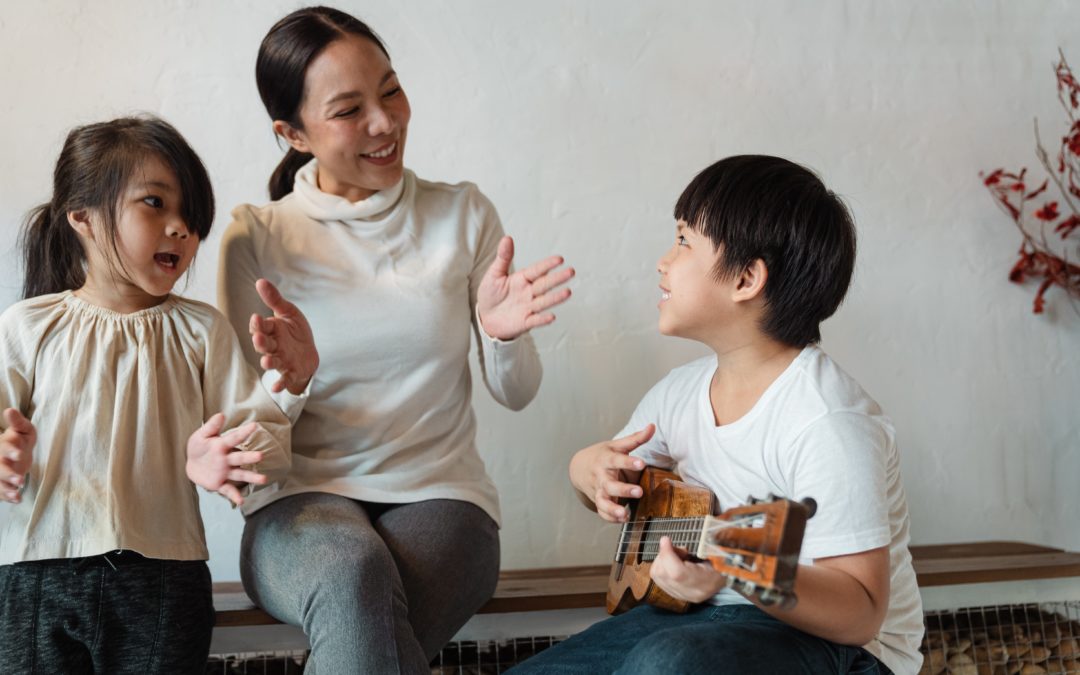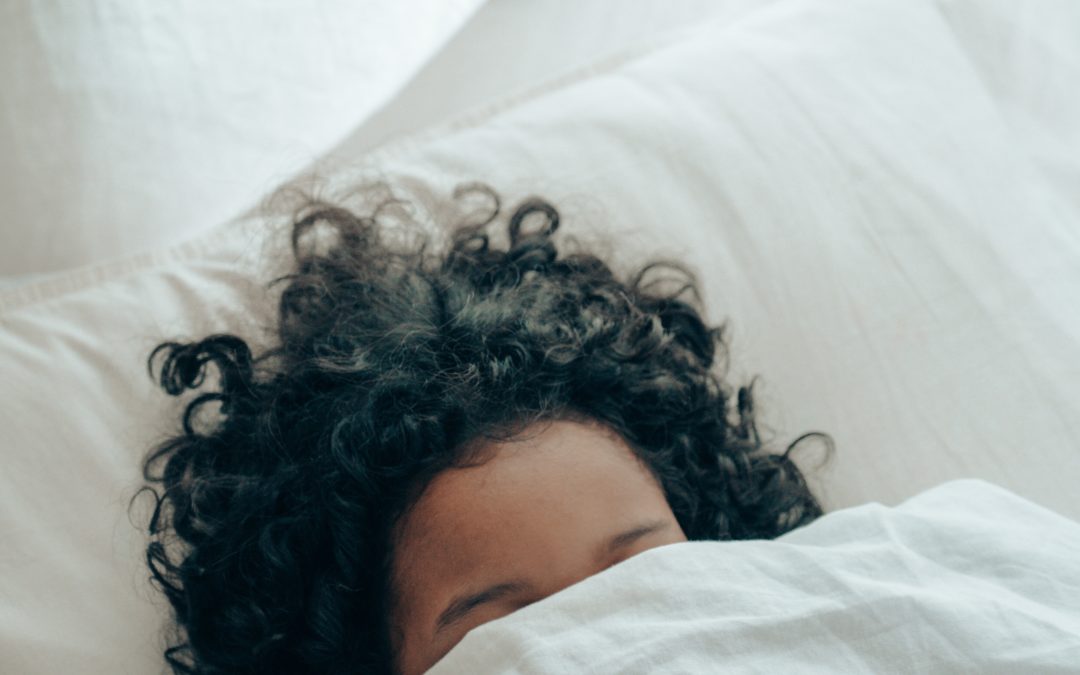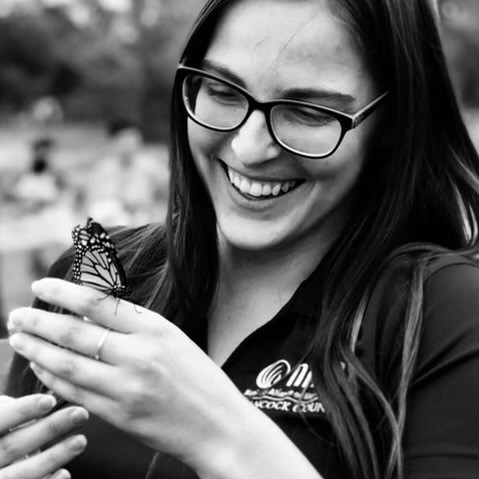
by NAMI Ohio | Mar 13, 2021 | Blog
“I don’t sing because I’m happy, I’m happy because I sing” William James
When is the last time you belted out your favorite tune? Singing, even when off-key, is one of the easiest and quickest ways to perform self-care. Scientists have found that singing can have a calming but energizing effect on people; it can also help tame stress, lift the spirits, improve concentration, increase memory recollection, improve mental alertness, as well as alleviate anxiety and stress1. You can sing new songs, old songs, songs in your primary language, songs in a foreign language, funny songs, or sad songs: the important thing is just to sing.
Below are a few links to spark some vocal inspiration:
50 Songs for Parents and Kids
The 51 Best Kids’ Songs Almost Any Parent Can Sing
50 Best Karaoke Songs
https://www.timeout.com/newyork/music/the-50-best-karaoke-songs-ever
Online Choir Performances
https://blog.chorusconnection.com/virtual-choirs-in-2020
Photo by Ketut Subiyanto from Pexels
1 https://www.chicagotribune.com/suburbs/advertising/todayshealthywoman/ct-ss-thw-health-benefits-of-singing-a-tune-20180314dto-story.html

by NAMI Ohio | Mar 11, 2021 | Blog
Perhaps one of the most well-known quotes in modern cinema is uttered in 1967’s Cool Hand Luke: what we’ve got here is failure to communicate. This classic line resonates with so many people because of the shared human experience of the struggle to not only communicate our own thoughts and feelings but the difficulty in trying to understand the thoughts and feelings being communicated by others. Communication can be viewed as one of the pillars of not only interpersonal communication but society and civilization as a whole. Without being able to effectively share our ideas, needs, and worries with others, many of us see our relationships struggle and our self-confidence plummet. So, if communication is so essential to our lives, why do nearly all of us find it so hard to master? We have all been in situations where we feel that we are just not being understood by the other person despite our best efforts. And we have all experienced conflict because we have failed to understand what a friend or loved one is trying to tell us. Is there a way to become better communicators?
One of the most basic ways to break down communication styles is through the “aggressive-assertive-passive” continuum. Identifying these differences both within ourselves as well as others can help us start to ensure that we are communicating efficiently and effectively with others. Aggressive communicators express their emotions and opinions in a way that hurts other people; they may use physical or verbal assaults, will try and dominate others, using humiliation, blame or attacks to control them, which can lead to these individuals alienating others or themselves, being hated or feared, and unable to identify or conquer their issues1. The opposite of aggressive communicators are passive communicators, who tend to be quiet, speak softly, and allow others to infringe on their space, time, and even rights; they often have issues with a low sense of self-worth, low self-respect, and don’t think that their own needs have importance1. The final communication type, and the one that is most effective in communicating with others, is the assertive individual; specifically, they clearly state their opinions and feelings, advocate for themselves and their needs appropriately, create an environment of respect, set healthy boundaries, and are direct about their wants and needs while being considerate of the rights, needs, and wants of others1. It is important to work towards developing a greater understanding of how to identify each communication type and how they impact the quality of communication between people.
There are many skills that you can practice which may help you communicate better with the people around you as well as help you to increase your confidence in your communication abilities. Utilize active listening, which is a technique where you focus on listening more than talking, remain engaged and interested in what is being said, limit interruptions, and reflect back what you have heard2. Clarify, summarize, and ask questions about the information the other person is sharing; this not only demonstrates your commitment to the conversations, this also allows you to gain more information and reach a mutual understnading2. Be aware of your non-verbal communication signals, such as eye contact, facial expression, tone of voice, and body posture, as all of these factors influence the ways you are perceived by others2. Finally, remember to approach communication with empathy and a genuine interest to learn about the other person’s perspective2. Remember to practice these skills as often as possible, as repetition helps to develop habits and good communication skills will certainly have a positive influence in your life.
Photo by RF._.studio from Pexels
1 https://betterandbetterer.com/passive-vs-aggressive-vs-assertive/
2 https://www.habitsforwellbeing.com/9-effective-communication-skills/

by NAMI Ohio | Mar 8, 2021 | Blog
“There is no greater agony than bearing an untold story inside you.” Maya Angelou
From the time that written language was invented, people have been writing down their thoughts, experiences, hopes, and feelings as a way to document their experience, work through complicated emotions, and keep a record of daily events. It has been long documented that journaling can have a positive impact on both mental and physical health; specifically, journaling daily can reduce feelings of depression, anxiety, and anger as well as less doctor visits, better immune systems, and reduced symptoms of chronic disease (like arthritis)(1). Furthermore, journaling daily can lead to a greater sense of meaning and purpose in addition to increasing the ability to work through life stressors and leading to high levels of self-awareness(1). And journaling can take many forms, from traditional pen and paper to bullets written on a phone app: there are benefits in all of its many forms.
Below are some tips for getting started and increasing your comfort with journaling(2):
- Start small and have realistic expectations: you do not need to spend a lot of time (start with just five minutes) or write anything prolific (you are writing) to experience the positive effects.
- Write at the time of day that is best: some people prefer to write before starting their day, others make it the last thing before bed. Do what works best for you.
- There are no wrong topics: write what you want, whether that is a story about your day, things you would like to accomplish, or simply listing what you are grateful for. Again, make this experience your own.
- Be accountable: it is better to write for a short period of time on a busy day than to not write anything. Make the commitment each day to journal and stick with it.
- Make your journal private: this should be a space for you to discuss things that are deeply personal so your journal is not something that you have to share with others. Keep your journal in a private place.
Remember: if you get stuck or need some fresh ideas, a Google search will produce many different writing prompts and examples of what works for others.
https://www.pexels.com/photo/fashion-woman-notebook-pen-34072/
1: https://greatergood.berkeley.edu/article/item/how_journaling_can_help_you_in_hard_times
2:https://vanillapapers.net/2019/11/13/journaling-tips/

by NAMI Ohio | Mar 3, 2021 | Blog
Sleep. We all do it. We all know it is important. The average human spends about 230,000 hours over their lifetime sleeping, so why are many of us so bad at it? Best estimates show that, at any given time in the United States, about 40% of adults report not getting enough sleep(1). Infants need about 15 hours of sleep per day and the number of hours needed gradually decreases until adulthood, with experts recommending seven to eight hours per night(1). Getting the right amount of hours of quality sleep can provide a plethora of health benefits. Research has consistently shown that people who get enough sleep and feel restful are more likely to get sick less often, stay at a healthier weight, lower their risk for serious health problems (like heart disease), use alcohol at lower rates, feel less stressed, have better interpersonal relationships, are less likely to smoke cigarettes or use narcotics, perform better at school and work, and avoid injuries (like auto accidents)(1). Experts have also identified factors that can contribute to difficulty falling or staying asleep, such as stress, anxiety, pain, caffeine use (usually from coffee, tea, and soda), alcohol use, narcotics use, health conditions (like heartburn or asthma), and some medications(1). Additionally, there is the possibility of an undiagnosed or untreated sleep disorder, like sleep apnea or insomnia(1). In addition to having trouble falling asleep or staying asleep, a sleep disorder could cause you to still feel tired after a good night’s sleep, feel sleepy during the day, or have a difficult time doing everyday activities (like driving a car), as well as possibly experiencing frequent loud snoring, pauses in breathing or gasping while sleeping, itchy feelings in legs or arms at night that feel better when you move or massage the area, and trouble moving your arms and legs when you wake up(1). If you feel like you may have a sleep disorder, please talk with your doctor about your concerns and if a medical sleep study may be beneficial for you.
Clearly getting enough quality sleep is important, so how do we learn to sleep better? Luckily, there are numerous suggestions by sleep experts that can help you have better sleep habits. First, make your bedroom a sleep-inducing environment by creating a quiet, dark, and cool environment equipped with a comfortable mattress(2). You can achieve this by using earplugs or a “white noise machine, using blackout shades/curtains or an eye mask, and a fan to keep your space well-ventilated and ideally between 60 and 75 degrees(2). Next, establish a relaxing pre-sleep routine and stick with that routine each day(2). About one before bed, take a bath, read a book, watch television, or practice relaxation exercises but make sure to avoid stressful, stimulating activities (such as doing work or discussing emotional issues), as this can cause the body to secrete the stress hormone cortisol, which is associated with increasing alertness(2). Another recommendation is to go to sleep when you are tired; if you are not asleep after 20 minutes, get out of bed, go to another room, and do something relaxing, like reading or listening to music until you are tired enough to sleep(2). One other suggestion is to keep your internal clock set with a consistent sleep schedule, even on the weekends and during holidays; specifically, going to bed and waking up at the same time each day sets the body’s “internal clock” to expect sleep at a certain time night after night(2). Finally, it is recommended that you avoid naps during the day, limit the amount of food and beverage consumed in the evening, and exercise earlier in the day(2). Hopefully, some of these tips can help you get better sleep each night and feel fully rested each day. Sweet dreams!
Photo by Ketut Subiyanto from Pexels
1https://health.gov/myhealthfinder/topics/everyday-healthy-living/mental-health-and-relationships/get-enough-sleep
2http://healthysleep.med.harvard.edu/healthy/getting/overcoming/tips

by NAMI Ohio | Feb 22, 2021 | Blog
It was my senior year of high school. I was an avid runner, and I was hoping to qualify for the state cross country championship. I spent the entire summer training. Our first cross country meet was a small local meet. I cannot tell you what my time or my place was. All I can tell you is that I could not catch my breath after crossing the finish line. My legs became weaker and weaker. I laid in the grass and hoped to recover. My body shook and I cried. I was afraid. I did not know what was wrong. I could not regain control of myself. My coach expressed disappointment. He blamed dehydration and explained that I needed to set a better example as the team captain. My dad took me to the emergency room. The doctor came in to speak with me and asked why I was crying. I was not sure. She explained that this was an anxiety attack, and it would be best if I took some time to relax and maybe get involved with therapy. That memory is a memory of many firsts. It was my first anxiety attack, my first IV, and my first experience of my mental health diagnosis being misunderstood and misjudged. Since then, I have devoted the last 10 years to therapy. I originally had a diagnosis of generalized anxiety disorder before a more thorough assessment revealed I have posttraumatic stress disorder (PTSD). I struggle with suicidal thoughts, nightmares, anxiety attacks, and depressive episodes. I have tried several interventions looking for ways to work through the complex trauma.
Today this is a combination of therapy, medication, and so much self-care. Recovery is a journey, and this journey has led me to self-discovery and a deeper understanding of myself. As I learn more about myself, I learn more about what helps. I am a social worker, and my career has taught me that I cannot be successful unless I take care of myself first. This is no easy task. My instinct is always to help other first, but this is a necessary lesson. I found NAMI through my professional life. I am now the Director of Programs at NAMI Hancock County. In my work at NAMI, I have found a mental health family and a passion for speaking up for those of us that live with such misunderstood diagnoses. I used to think that I was not “bad enough” for a support group or additional services. I have learned that there is no such thing as “bad enough” and we can all benefit from connection to those who understand. I am now proud to be a person that understands and proud to say I have not let my diagnosis win. I am still standing, stronger than I was yesterday. My diagnosis does not define me. I get to define me, and I am still an avid runner, a wonderful friend, and a compassionate human.
Bailey Kerr is the Director of Programs at NAMI Hancock County and is currently working as a graduate intern with NAMI Ohio. She is studying social work at Case Western Reserve University and will complete her coursework later this year.



by NAMI Ohio | Feb 3, 2021 | Blog
“The world is a book and those who do not travel read only one page” -Saint Augustine
For many people, taking a vacation or traveling to somewhere new is one of the best ways to relax and unwind for self-care. And it seems that it is healthy for us, as travel has been linked with increasing creativity and happiness while decreasing stress and depressive feelings1. With the current reality of travel restrictions, financial hardships, and temporary closures of many vacation destinations, a great way to experience the feeling of getting away without leaving your own home is through virtual experiences. There are hundreds of places all over the globe that are giving access, almost always for free, to their artwork, performances, and landmarks; some are simple cams that you can watch at your leisure whereas others are guided tours by some of the greatest experts in the world.
Below are some of my favorites:
The Museum of Modern Art (MoMA)
https://artsandculture.google.com/partner/moma-the-museum-of-modern-art
The British Museum
https://britishmuseum.withgoogle.com/
The Museum of Natural History
https://naturalhistory.si.edu/visit/virtual-tour
Monterey Bay Aquarium
https://www.montereybayaquarium.org/animals/live-cams
San Diego Zoo
https://animals.sandiegozoo.org/live-cams
U.S. National Parks
https://artsandculture.withgoogle.com/en-us/national-parks-service
Metropolitan Opera
https://www.metopera.org/user-information/nightly-met-opera-streams/
Virtual Tours of Popular Tourist Attractions Around the World
https://upgradedpoints.com/virtual-tours-of-popular-attractions
Photo from Pexels
1 https://www.nbcnews.com/better/wellness/5-scientifically-proven-health-benefits-traveling-abroad-n759631








